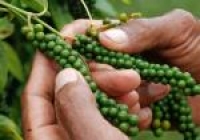Key Points
 • Alternative development must not be part of a militarised security strategy, which is the predominant approach in Colombia. Instead of simply attempting to reduce the area planted with illicit crops, Alternative Development programmes should operate within the framework of a rural and regional development plan.
• Alternative development must not be part of a militarised security strategy, which is the predominant approach in Colombia. Instead of simply attempting to reduce the area planted with illicit crops, Alternative Development programmes should operate within the framework of a rural and regional development plan.
• Alternative Development programmes must foster social processes in which the community participates and is empowered throughout the entire project cycle, from formulation to evaluation.
• Before intervening in conflict zones, such as drug crop-growing areas or transit corridors, international cooperation agencies should carry out detailed assessments of factors such as: changes in land tenure structures as a result of the armed conflict; existence of emerging powers related to drug trafficking, paramilitaries or other armed actors; situation of legitimate community organisations (Afro-Colombian and indigenous communities), among others.
• International cooperation agencies should analyse in depth the role of Alternative Development, examining the process of territorial control by organised criminal groups.
Read the report here
Director of Acción Andina Colombia
Ricardo Vargas Meza is a Sociologist with a Masters in Social Philosophy from the National University of Colombia. He is an author, among other texts of Fumigation and Conflict: Anti-drugs policies and the delegitimisation of the Colombian state (Tercer Mundo, TNI and Acción Andina, December 1999); Drugs, Armed Conflict and Alternative Development (Acción Andina Colombia, June 2003, Bogotá); Narcotrafficking, war and anti-drug policies (Acción Andina Colombia, Novib – Oxfam The Netherlands, June 2005); Alternative Development in Colombia and Social Participation: Proposals for a change of strategy (DIAL, September 2010, Bogotá).
Vargas writes frequently for various publications and journals, both in Colombia and internationally. He also does international consultancy on issues of development, illegality and security.

